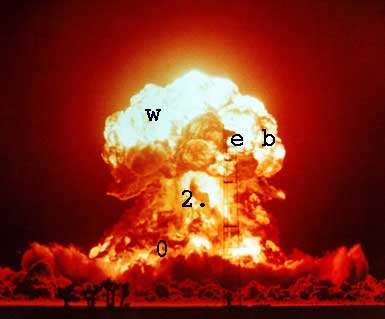My "Web 2.0 doesn't exist" post kicks up a ruckus


Man, did I raise a storm of controversy with my Web 2.0? It doesn't exist post.
Which is exactly what I intended to do. Cool. I meant every word of it.
Let me recap what I said, then turn to what others have said, both pro and con.
I wrote in part:
The advances being touted under the general umbrella of Web 2.0- advances written about with considerable skill on our own Web 2.0 Explorer Blog by our own Richard MacManus - well, of course those advances exist. RSS, Social Media, content aggregation, podcasting, you have it.
My problem is not with the characterization of the components of Web 2.0. It is the implication inherent in the very livery, "Web 2.0," that I just don't get.The problem I have with this "Web 2.0" slogan is that it is a contrivance, meant to imply a unified movement or wave toward a better Web.
Well, Web 2.0 is bunk. Not that the elements of this rebirth aren't there. I write about some of them, and Richard has them nailed. It's just that they cannot be classified under a common umbrella. They are forward lurches of various standards and technologies, some compatible, some not. Some revolutionary, some evolutionary, some impractical. Some are collaborative, others are highly competitive with each other.
Some other blogger/thought-leaders out there approve:
Excellent piece by Russell Shaw about Web 2.0.He's exactly right, and what he says is kind of obvious.
Web 2.0 is a way for certain marketing people to claim they invented stuff that they didn't invent, without actually claiming they invented it. It's the kind of double-talk marketing guys love.
In a sense people are right when they say it's another bubble. It's dishonest like the bubble was. Yet the technologies they're hyping are honest.
Yeah, we're getting fleeced again. It sucks.
Richard MacManus himself, on his Read/Write Web Blog:
I've had enough of the hype. I've had enough of cynicism. I've had enough of hate blogs. The nail in the coffin was this post on ZDNet, by Russell Shaw. The thing is, I agree with Russell. The term 'Web 2.0' is distracting from the real value going on in the Web right now.
Read/WriteWeb will be focusing on more media-related web technology in 2006. Enough Web 2.0.
Halley Suitt, on Halley's Comment:
Thanks to Winer's Scripting News for mentioning this piece by Russell Shaw which clarifies what I already knew. Web 2.0 is bullshit.
I keep hearing really dopey people use the term "Web 2.0" as if it meant something -- you know, as if it were real language and not some bogus slogan.
Consider the source -- the dopey people using it are also saying other dopey if not idiotic things -- so I knew it was something bogus.
Thanks, Russell, for confirming my suspicions.
Staci onPaidContent.org seems somewhat receptive:
The chatter is shifting from "Bubble 2.0" to "No 2.0" as some people rebel against the idea that everything new and wonderful online right now can be tucked neatly into what started as a marketing slogan.
Oh, but I do have my critics. The critique that jumps out at me most is from philosophically inclined, gifted thinker Stowe Boyd, president of blog network Corante:
Baloney. Web 2.0 has become widely used as an indicator that something different is going on with recent innovations on the web. It is being adopted by a wide range of people, including marketing weasels and earnest technologists, each of whom have their own reasons for adopting the term.
Russell looks to a Wikipedia definition for the term as justification for the notion that it was created by marketing propagandists to advance their evil goals: specifically, to create a series of profitable conferences, by which I guess he means John Battelle and Medialive, the folks behind the Web 2.0 conference. Wikipedia as a proof of something? Come on.
Appending a "2.0" to a term does not imply -- at least to me -- that some sort of consensus has been reached about the meaning of the term, or even less that its based on some collection of standards. It originally meant a new rev of a product, which implies a redesign and the rollout of new features. And "2.0" has become a useful suffix (like "gate" in the political sphere) to indicate a revolution, where the mistakes and bad design choices of an initial release are fixed, or at least countered. Media products -- such as Business 2.0 and Release 2.0 -- have fixed that notion into the zeitgeist. And Web 2.0 is so widely used that ascribing it to Battelle & Co. is really silly.
And in the Comment field for a followup poll on Corante on whether or not the term Web 2.0 should be dropped, Stowe writes that the term "is a useful abstraction."
Sorry, but when "earnest technologists" employ "useful abstractions," my eyes glaze over. That's a problem with the lack of respect for true technology, and true science in our culture. Techies speak geek, not the voice of the everyperson.
And when "marketing weasels" work with "useful abstractions," there goes my moo-goo detector.